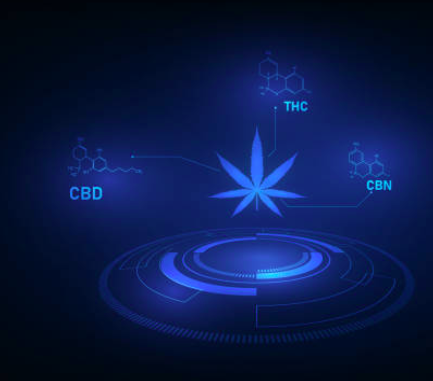How CBD is Misunderstood

CBD awareness is increasing rapidly. People of all ages are curious about the benefits of CBD, but there is still so much confusion and misunderstanding about CBD. If you are on social media, 98% of the posts about CBD are associated with the traditional imagery associated with Pot. If you search CBD, the majority of articles, blog posts, memes and social media posts have visuals we have all learned to connect to the “stoner culture”.
For anyone looking only for any potential benefits of CBD and aren’t interested in a high, this is extremely confusing and off putting to those who might benefit the most from CBD, but won’t give it a try because of this imagery and are fearful of getting ‘high.’
This is an unfortunate mixed message and if someone were to continue to read about the reasons why CBD won’t give you that “high” feeling, it all becomes very scientific and medical and can become very overwhelming very quickly and because of its close relationship with marijuana, the stigma surrounding CBD is hard to shake. Like any stigma related to anything; health issues, emotional issues, anxiety, addiction, the stigma is a result of not just misinformation or too much information or worse, conflicting information (one article will say it calms you, while another talks about the energy you will feel), but simply the lack of knowledge about the actualities of CBD.
Here are some misunderstandings that we at Enhanced Health Products are asked about regularly.
CBD is made from hemp or Marijuana, not both.
CBD is one of the many chemical compounds present in the Cannabis sativa plant, which includes both marijuana and hemp. These compounds are often referred to as phytocannabinoids. Phyto tells us that they come from a plant and cannabinoid is the name given to a group of closely related compounds found both inside and outside the body. We could get into the difference between hemp and marijuana but for the sake of keeping it simple and clearing some things up, just know that hemp and marijuana are both cannabis and CBD can be derived from either.
CBD is just THC without the high OR CBD and THC are the same thing; one gets you high and the other doesn’t.
For most people, the only cannabinoid anyone really knew about (or cared about) was the one that got you high, THC. When CBD started to become the hot topic it is, it seemed easiest to assume the only difference must be that one gets you high and the other does not, but other than that, “same thing.”
This is one of the bigger misconceptions out there. CBD and THC are from the same plant, yes, but they are two completely distinct compounds that interact very differently in the body. CBD’s reaction in your body does not produce the same effects that THC’s reaction in your body does.
CBD doesn’t effect your brain, that’s why it won’t get you high.
Ok, to be clear, CBD will not get you high. You won’t feel stoned with CBD, but it does have some effect on your brain otherwise if wouldn’t be in studies to test as a potential treatment for anxiety, PTSD, seizure disorders or depression. The effect however, is NOT the same that THC has.
CBD is legal in all 50 states/CBD is illegal.
This is one of the misunderstandings that is most associated with CBD and one of the most common questions our customers have. Currently, there is work being done to clear up the gray area of CBD and bring full awareness to everyone on the legalities of CBD.
As of now, in the simplest of terms, under federal law, CBD is classified as a schedule 1 substance because it is derived from Cannabis Sativa, which falls under the same class. However, various laws have been passed that allows CBD to be extracted and then manufactured, sold, studied and ingested as long as some specific requirements are met.
I hope we have cleared up some common misunderstandings with CBD. There is a lot of movement towards the education, awareness and common use of CBD and we hope that you will visit the Enhanced Health Products Shop to find the best product for you.
This website contains general information about medical conditions and treatments. The information is not advice, and should not be treated as such.
The information in this article is intended for informational purposes only and not intended to diagnosis, cure, or treat any healthcare issue.
Our products have not been approved by the FDA and should not be considered for use as a nutritional supplement.
Please consult your doctor or other appropriate medical professional before adding CBD or any of our products to your routine.